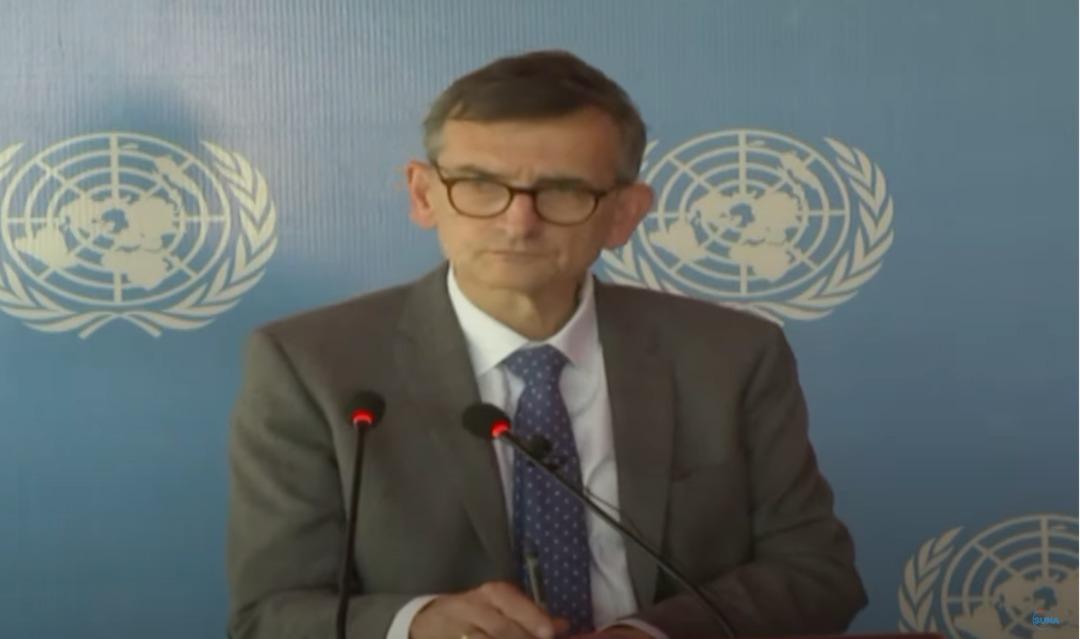Alyurae – (Reuters) – Khartoum –
In a press briefing held yesterday afternoon, Mr. Volker Bertis, the UN Secretary-General’s Special Representative in Sudan, announced the launch of preliminary consultations for a political process aimed at restoring the path of transformation that achieves the aspirations of the Sudanese people.
Peretz said that only the former ruling party under Al-Bashir and the Sudanese Communist Party categorically rejected the initiative, while the army did not object to the operation
Peretz’s statement provoked widespread discontent on social media and platforms among Sudanese, where many were surprised by this step and considered it an insult to the Sudanese people, who uprooted the former regime and sacrificed hundreds of martyrs for it.
Many believe that the UN representative does not put any considerations into the Sudanese revolution or their recent demonstrations.
Protesters regularly take to the streets to demand civilian rule, and medics allied with the protest movement say more than 60 people have died in clashes with security services.
“I hope that these consultations will become something like confidence-building measures and at least help reduce violence,” Peretz said.
To date, protest groups and political parties overthrown by the coup have refused to negotiate directly with the military.
Peretz said that the United Nations would begin to communicate with the groups one by one in the hope of moving to a second phase of direct or indirect negotiations.
The first sessions are supposed to take place on Monday afternoon with the participation of civil society groups. “Every day we’ll talk to groups of stakeholders,” Peretz said.
United Nations officials are asking the groups to put forward their visions for a way forward in the hope of reaching consensus on points of agreement and disagreement at the conclusion of the talks.
Analysts and diplomats say that unless a new transition path and a path to fair elections are found, the failure could be a prelude to worsening sudan’s economic crisis and widening instability within and outside its borders.
Peretz told Reuters that he would try to take advantage of offers of support from international players, including the United States and Saudi Arabia, adding that other countries, including European countries, as well as Kenya, had offered support.
“The United States, Saudi Arabia and two other parties are very involved, and they have helped develop some ideas,” he said.
More mass protests against the army are scheduled, with a new round of protests expected on Wednesday.



